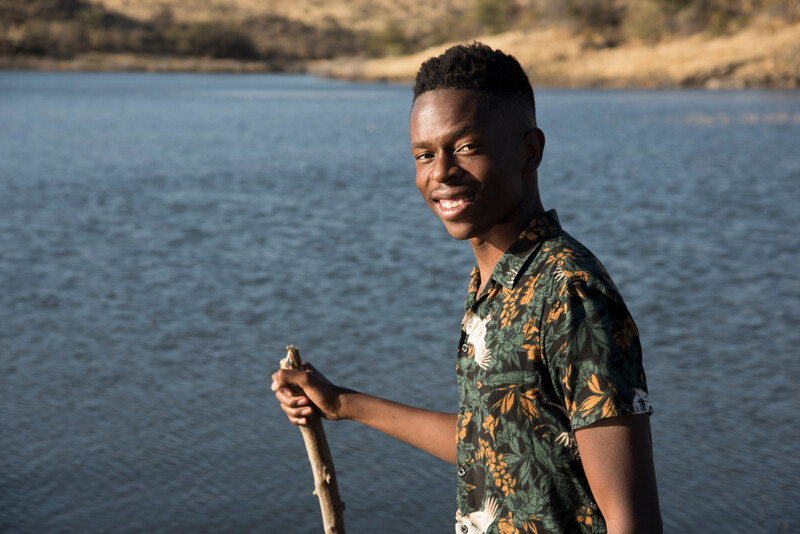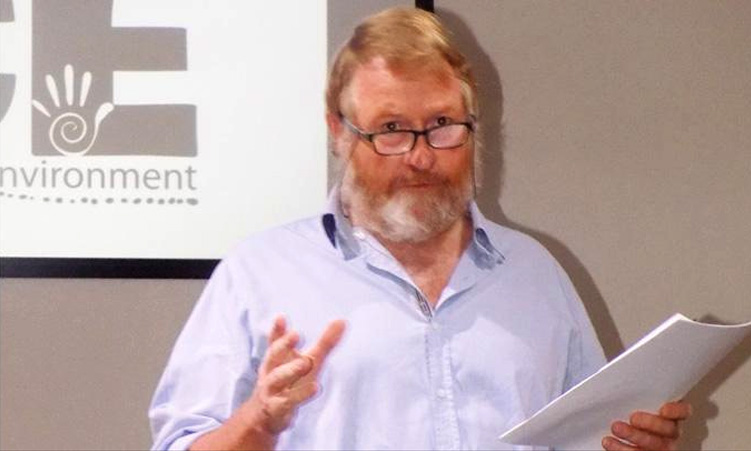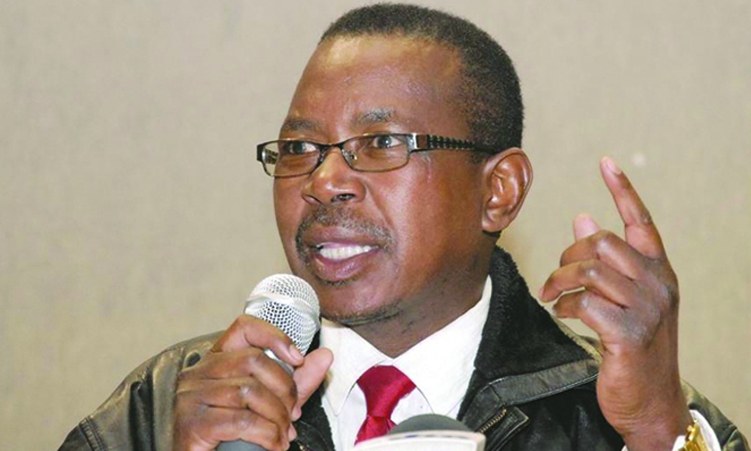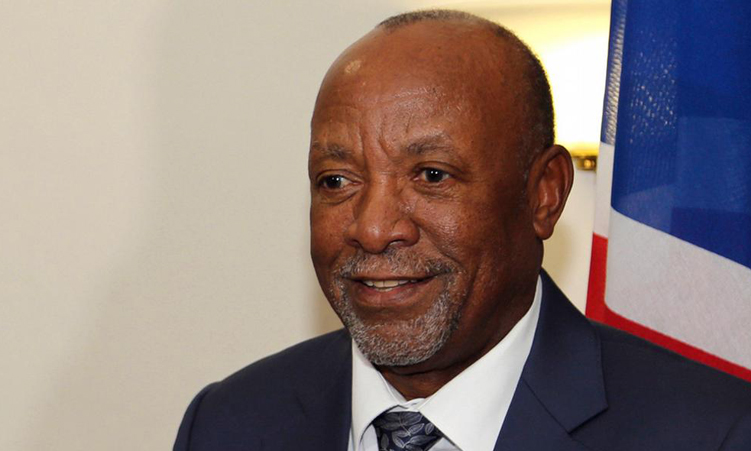President Nangolo Mbumba says he has not heard of any environmental red flags being raised about the government green hydrogen project.
Mbumba was speaking to German broadcaster Deutsche Welle on Tuesday about critics who say the project might create new problems, including environmental concerns.
The reporter asked Mbumba: “How do you respond to critics who say the project is creating new problems, including environmental problems?”
Mbumba said: “It’s the first time I’m hearing that version. I’m saying it’s the first time I heard the criticism in that direction.”
This is despite numerous cautionary tales from environmentalists regarding the impact the project will have.
One of these is the Namibian Chamber of Environment that in May said the planned hydrogen project in southern Namibia should be stopped until an environmental assessment impact study is done.
In their paper, focusing on the potential risk of the project in the Tsau //Khaeb National Park area, the chamber said the project poses a severe threat to one of the few global biodiversity hotspots in an arid area.
The area is also one of the largest near-pristine wildernesses on earth.
The Hyphen project, located in the Tsau //Khaeb National Park in the //Kharas region, is the most expensive green hydrogen project in Namibia, valued at approximately N$190 billion.
This project is run by the Hyphen Hydrogen Energy consortium, led by German company Enertrag, which has the rights to the project for 40 years.
Hyphen says this project would create at least 15 000 jobs, while Germany would receive green energy to replace fossil fuels.

Environmentalist Reinhold Mangundu yesterday told The Namibian it is concerning that the president claims he has not heard any criticism of green hydrogen initiatives in Namibia.
“This stance seems dismissive, especially considering the magnitude of such projects, which naturally invite scrutiny and concern.
A feasibility study inherently involves assessing potential risks and public opinion, so it is puzzling to hear such claims of ignorance,” he said.
He pointed out that numerous concerns have been raised about the lack of consultation surrounding these projects, particularly regarding the potential destruction of the Tsau //Khaeb National Park.
“This area is a biodiversity hotspot, and plans to develop infrastructure there pose significant threats,” Mangundu said.

“The Namibian Chamber of Environment has called for an independent and transparent strategic environmental assessment of the green hydrogen sector, highlighting that proposed developments could severely impact the park’s integrity, biodiversity and future tourism,” he added.
He emphasised that concerns are well-documented in various reports, making the president’s dismissal of criticism all the more troubling.
The chamber’s Chris Brown, in an article published in May by South Africa’s Daily Maverick, said the process of capturing the energy from these natural resources involves hundreds of huge wind turbines and solar panels, which have a number of environmental impacts.
“Plants under the solar panels that are adapted to full-sun desert conditions will not survive, while the massive turbine blades are known to kill birds and bats.
“These direct impacts are concerning, yet they are among the least of our worries.
The solar farms and turbine arrays all require roads, transmission lines and other infrastructure for maintenance and electricity distribution, power lines are worse news for birds, such as the endangered Ludwig’s bustard, than turbines,” Brown wrote.
EXPECTATIONS ON NEGOTIATIONS
Meanwhile, speaking on the ongoing genocide negotiations during Tuesday’s interview, Mbumba said he is seeking a formula to quantify the lives lost.
“We can find a formula, not a perfect one, but at least a formula to indicate that the wrongs have been recognised and atonement or reparation has been done,” the president said.
Namibia and Germany have been negotiating on the reparations for the genocide the European country committed from 1904 to1908, killing countless Nama and Herero Namibians.
The first proposed agreement offered €1.1-billion development funding over a span of 30 years. This was not accepted and negotiations continued.
Mbumba said they will establish a body to facilitate the projects and the funds.
“The institution that will be created to rectify what was lost, what was destroyed, will have to have its own institution to do those things. So, that should not be a compensation, that we help you to build a school and, therefore, we cannot give you the money for reparations,” he said.
Political analyst Ben Mulongeni yesterday said the genocide issue should have been treated as a Namibian-German issue.

“All the years, since my school years, and also since my participation in the struggle, I did not consider this as a Nama or general genocide. It’s a Namibian genocide,” he said.
WATER UPDATE
Mbumba also said the government is facing challenges with drilled boreholes water supply.
“Because where we are drilling, the water is salty.
The pipes we have tried to connect from the water source, the pressure is not enough, and the only way left was to make sure that we deliver water by trucks,” he said.
“Before I left home, I had to instruct the Office of the Prime Minister, the Office of the Deputy Prime Minister, the minister responsible for works and transport, as well as the minister responsible for agriculture and water to make sure that trucks continue to deliver water,” he said.
Ministry of Agriculture, Water and Land Reform spokesperson Simon Nghipandulwa yesterday gave The Namibian an update on Namibia’s water situation.
“The current average percentage of households with access to potable water supply coverage countrywide is estimated at around 92.04%,” he said.
Nghipandulwa said they have constructed 19 new earth dams as part of the water harvesting infrastructure.
These include six in the Ohangwena region, one in Omusati, seven in Oshana, three in Kavango West, one in Hardap and one in //Kharas.
The ministry also constructed 11 new short pipelines while an additional five short pipelines were rehabilitated.
“One hundred and two existing water points were rehabilitated, in addition to 53 existing boreholes cleaned… [Another] 186 new boreholes were drilled and 106 of these boreholes were installed,” he said.
The spokesperson indicated that on sanitation infrastructure development, a total of 238 sanitation facilities were constructed countrywide.
Additionally, the construction of the Onamatanga pipeline is at 75%.
“We also have our water tankers that continue to deliver water to places that have a dire shortage of water,” Nghipandulwa added.
Stay informed with The Namibian – your source for credible journalism. Get in-depth reporting and opinions for
only N$85 a month. Invest in journalism, invest in democracy –
Subscribe Now!







